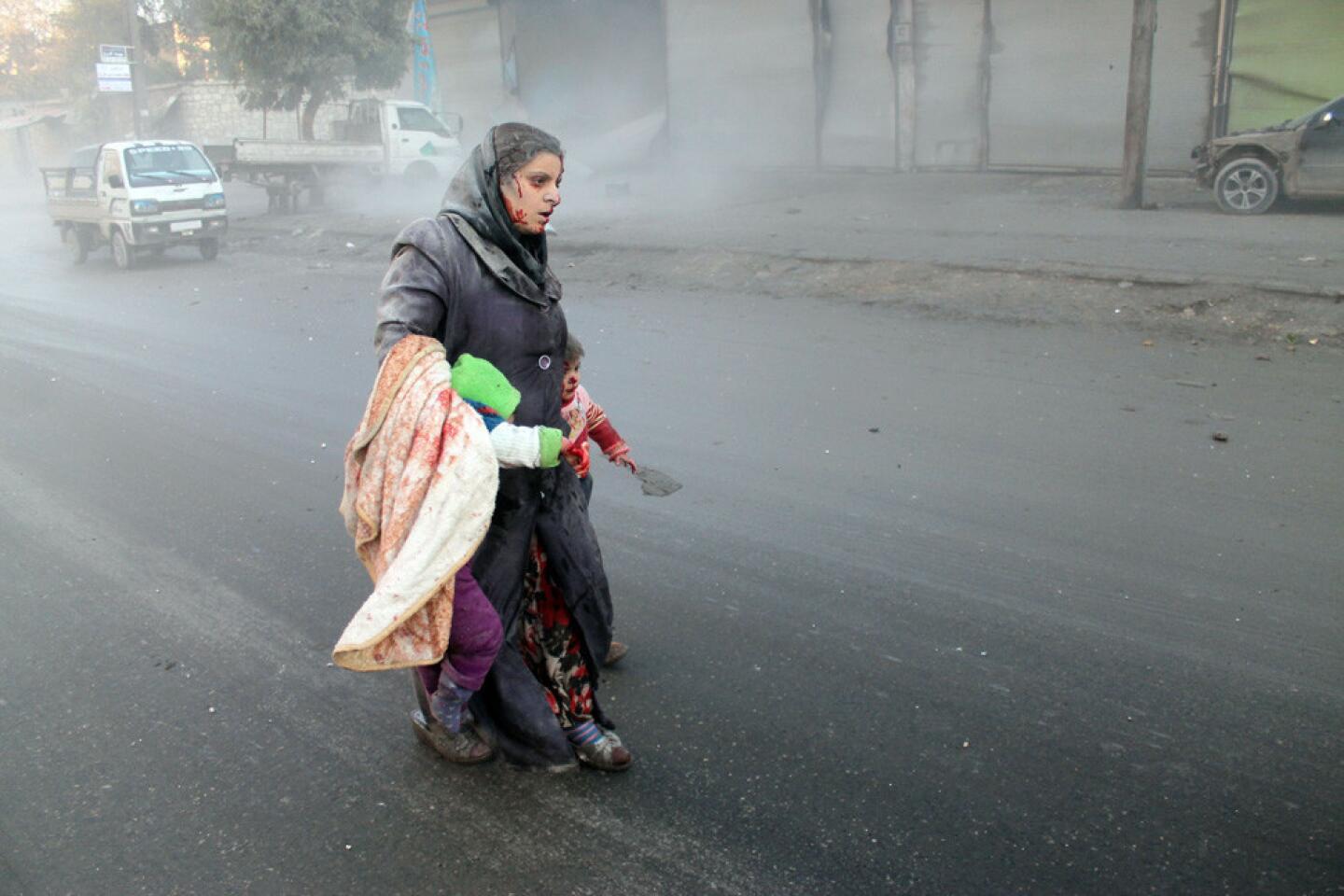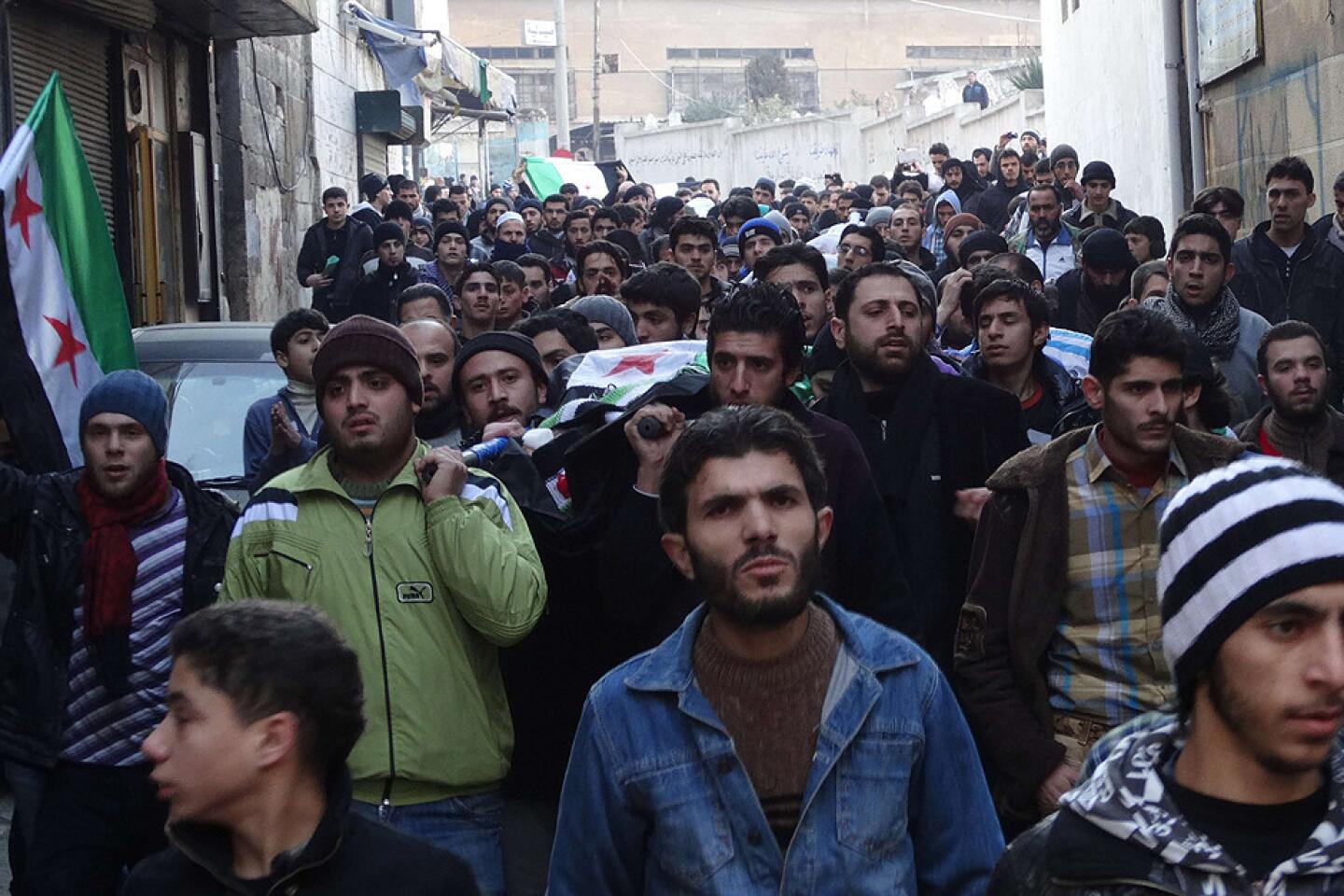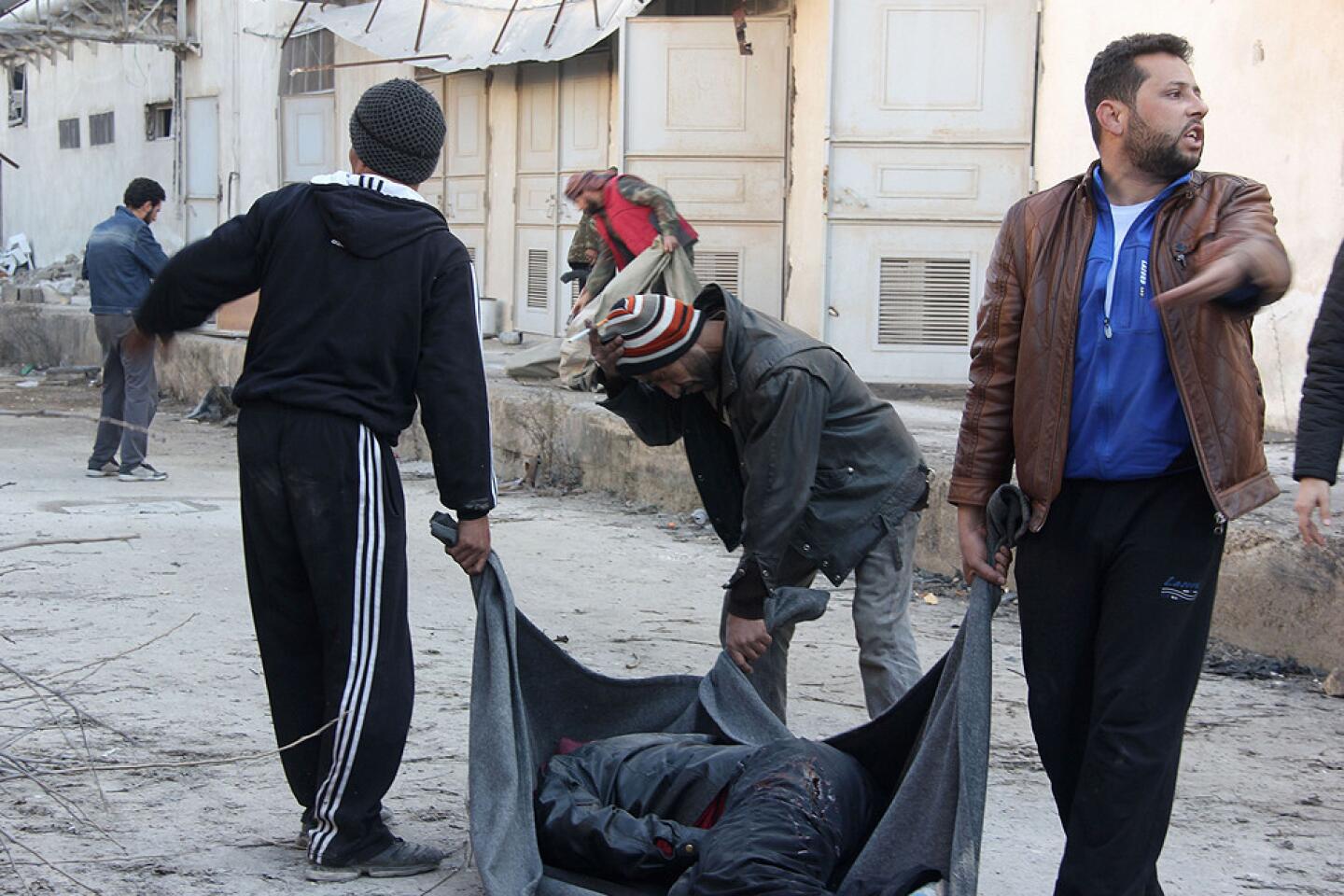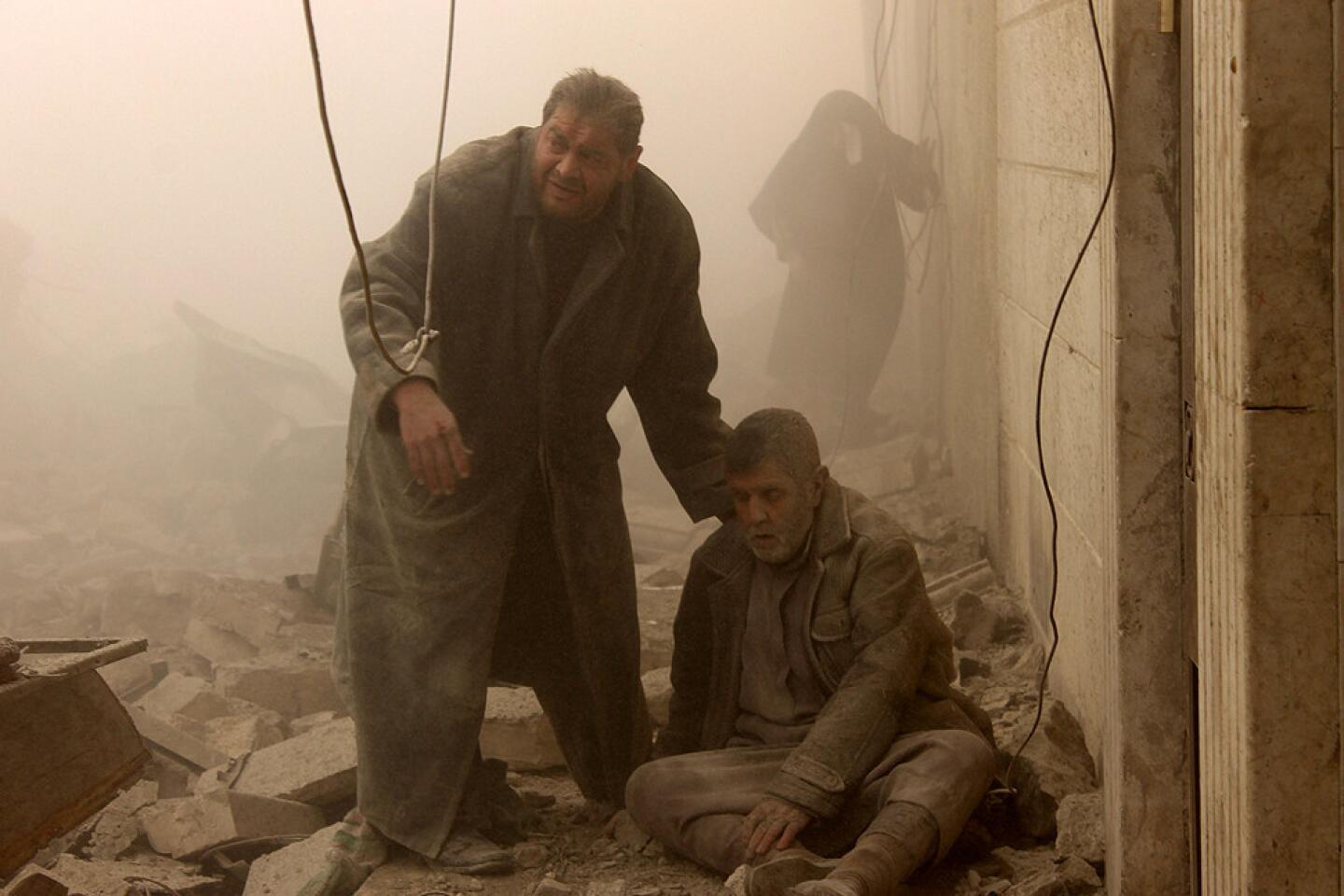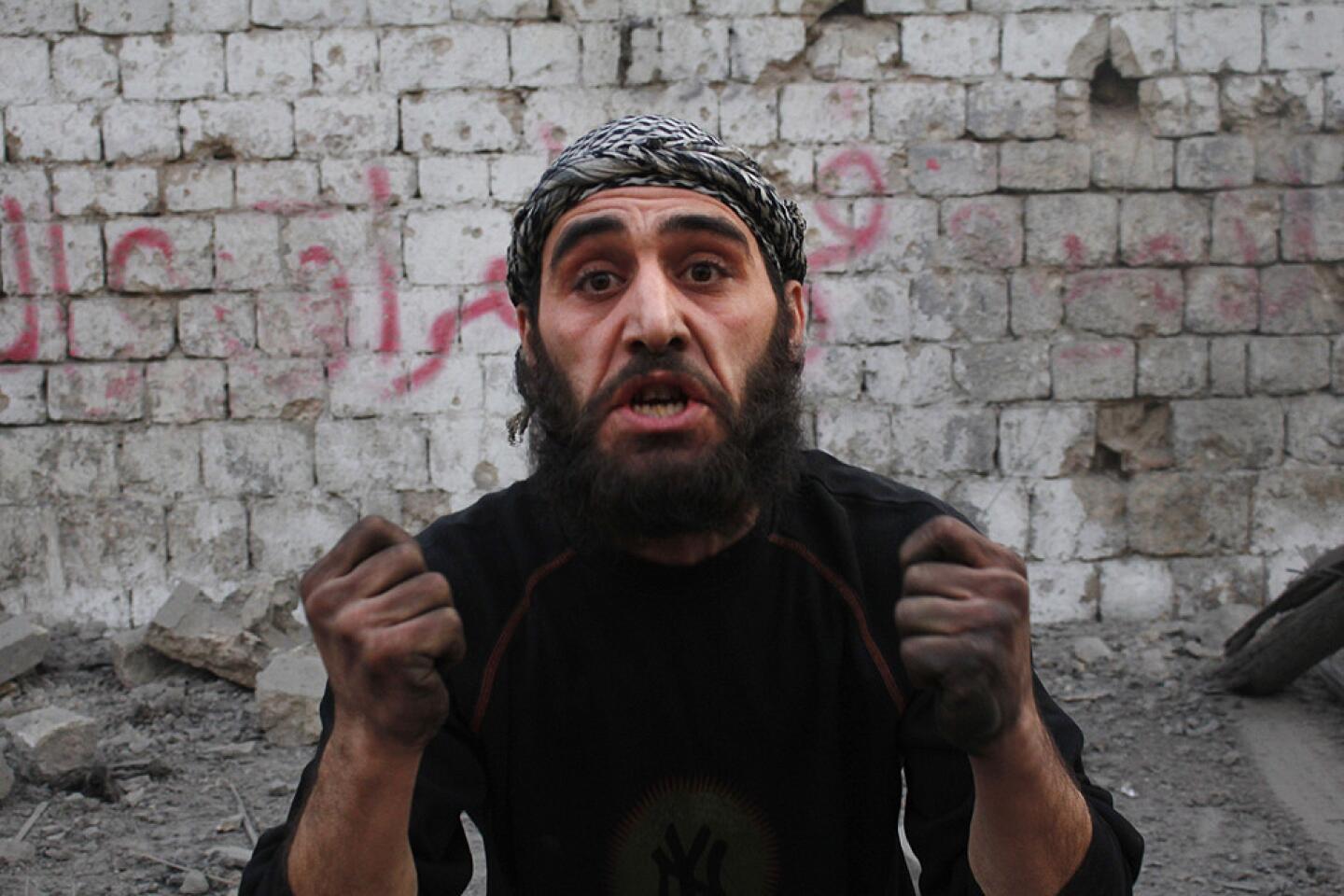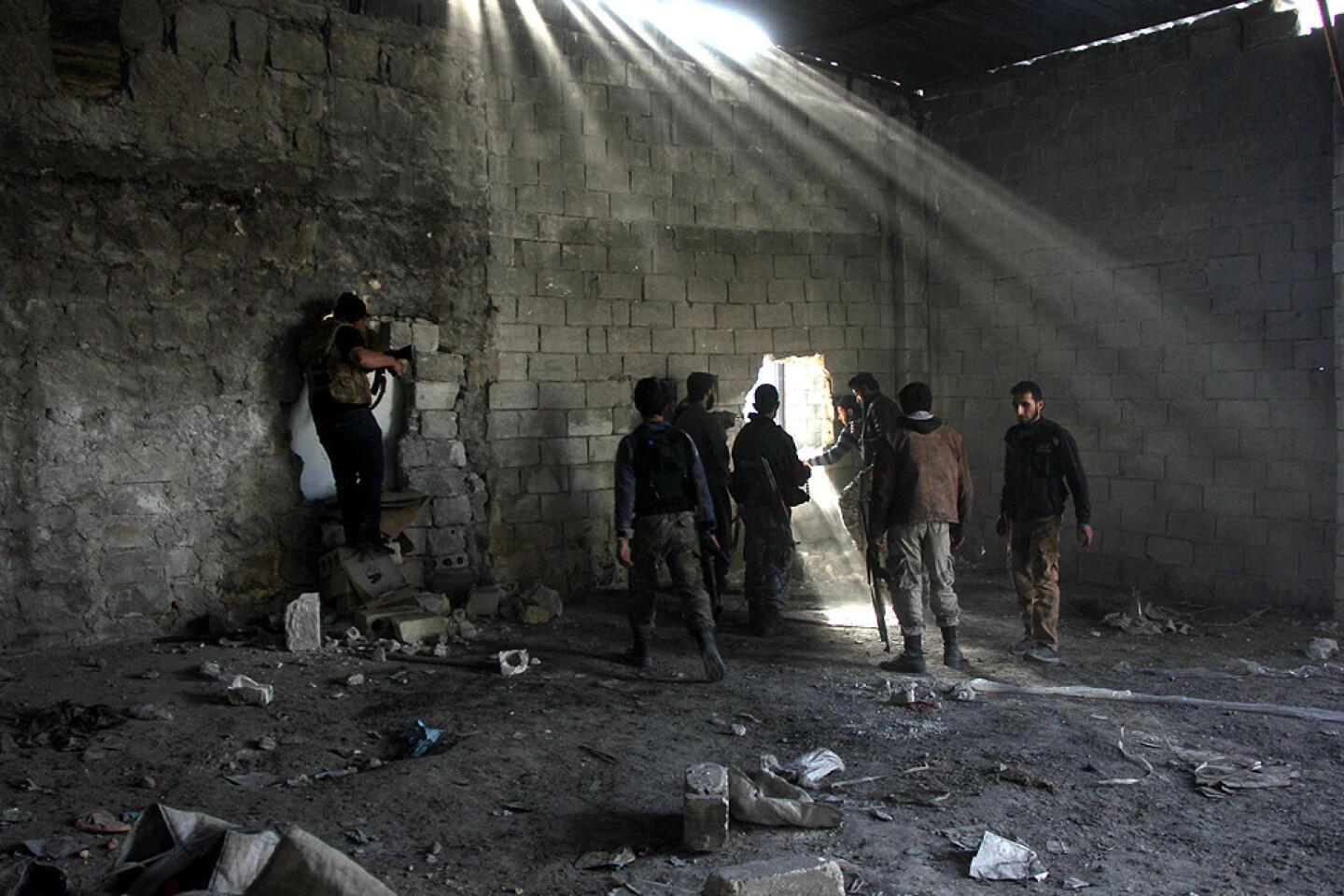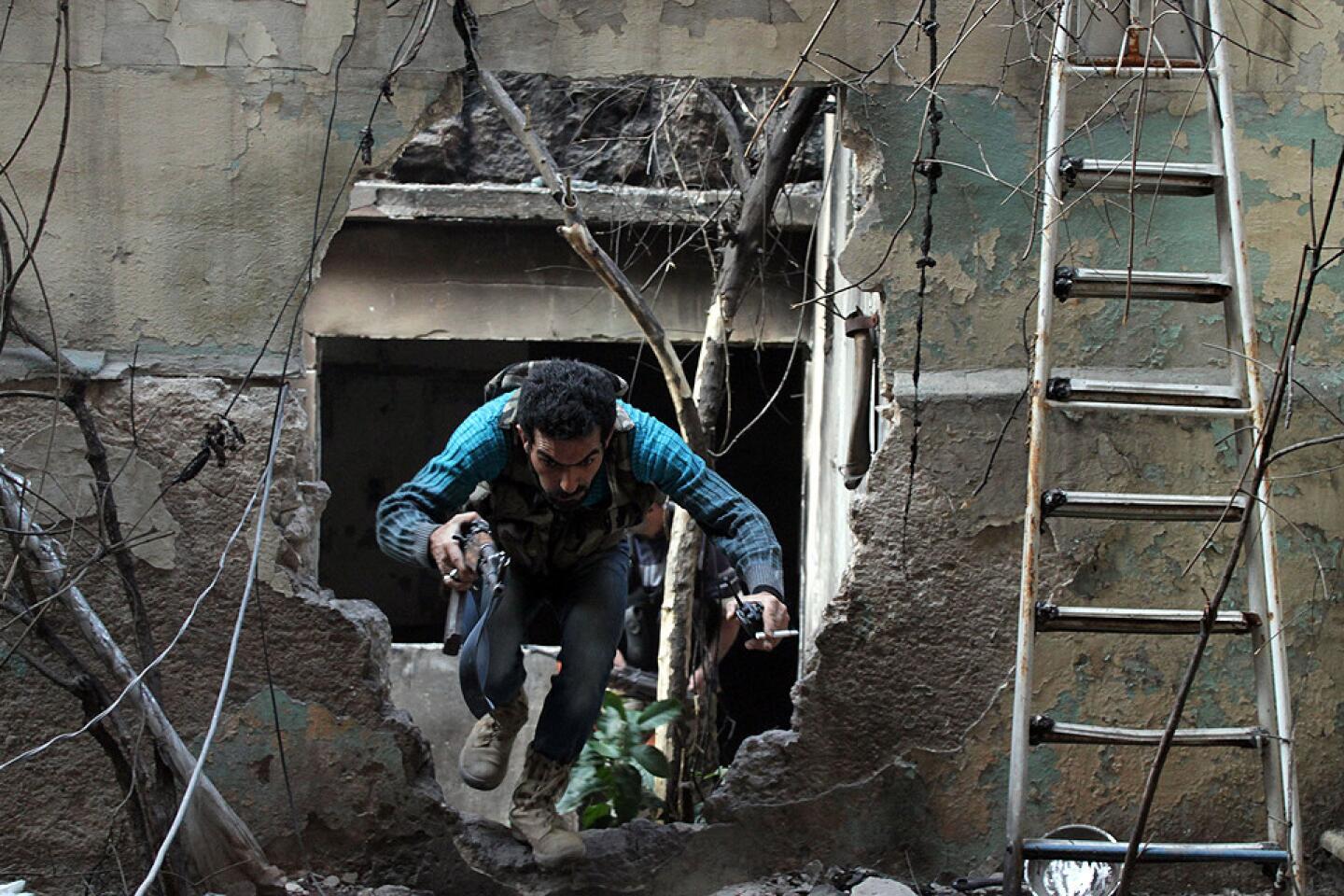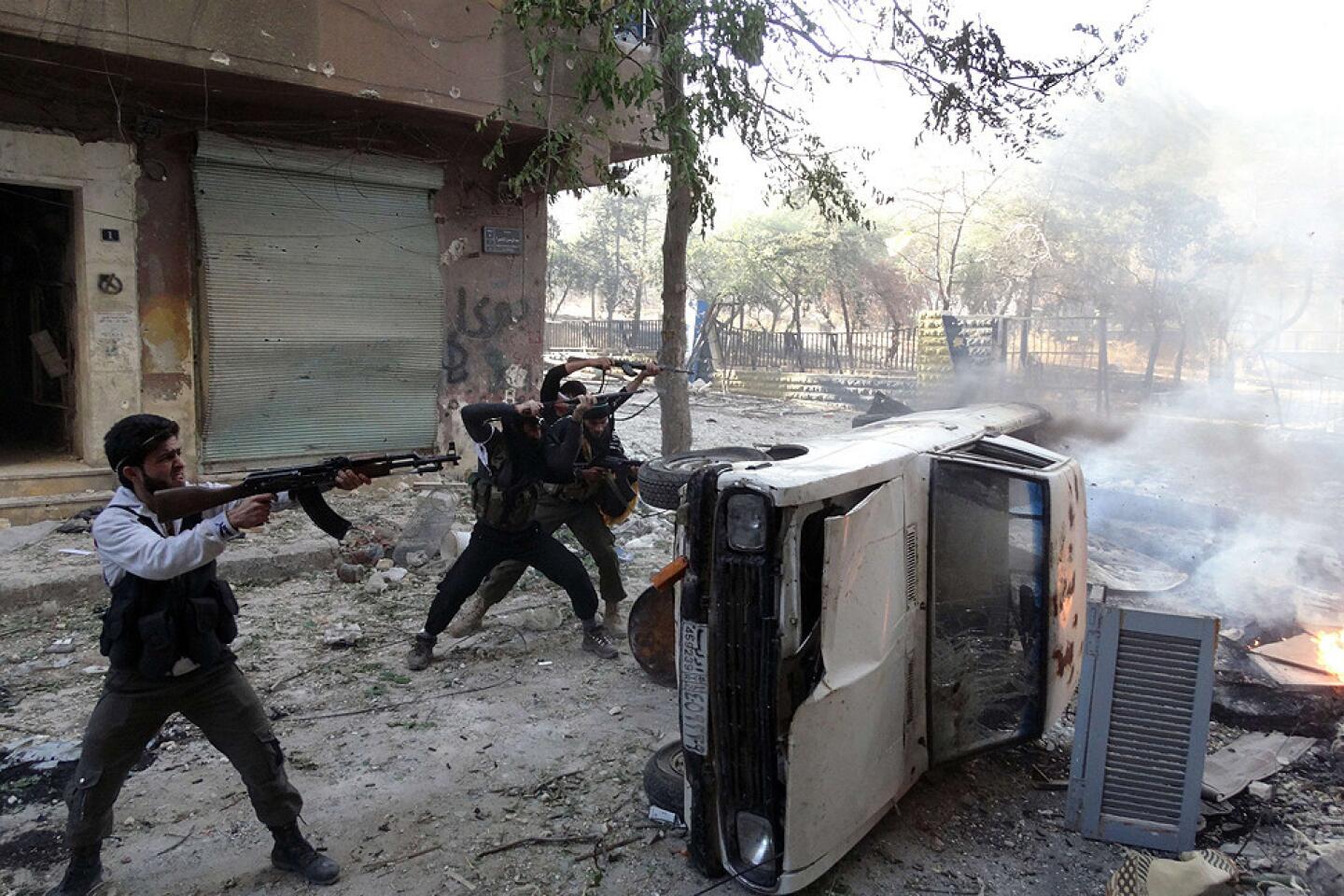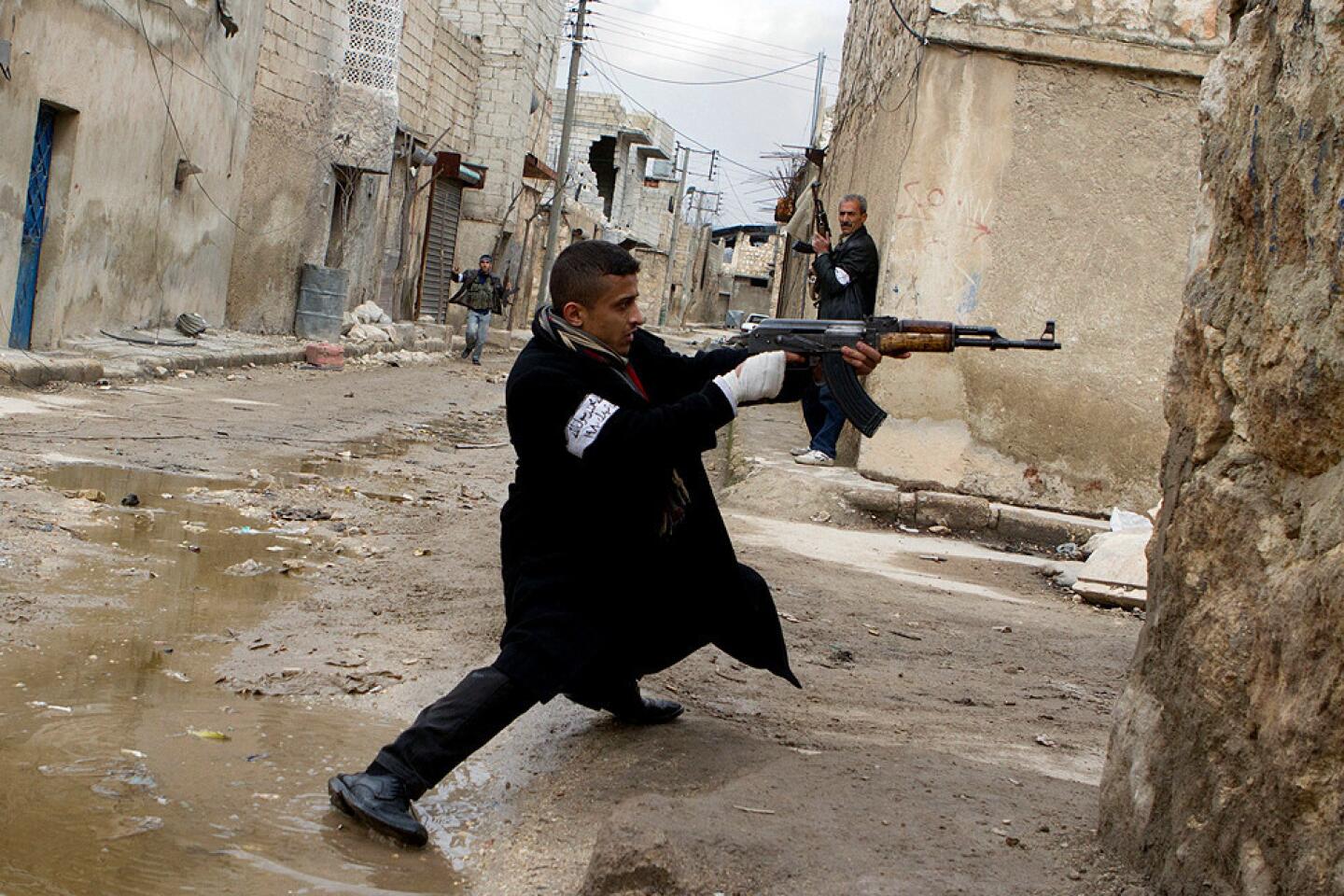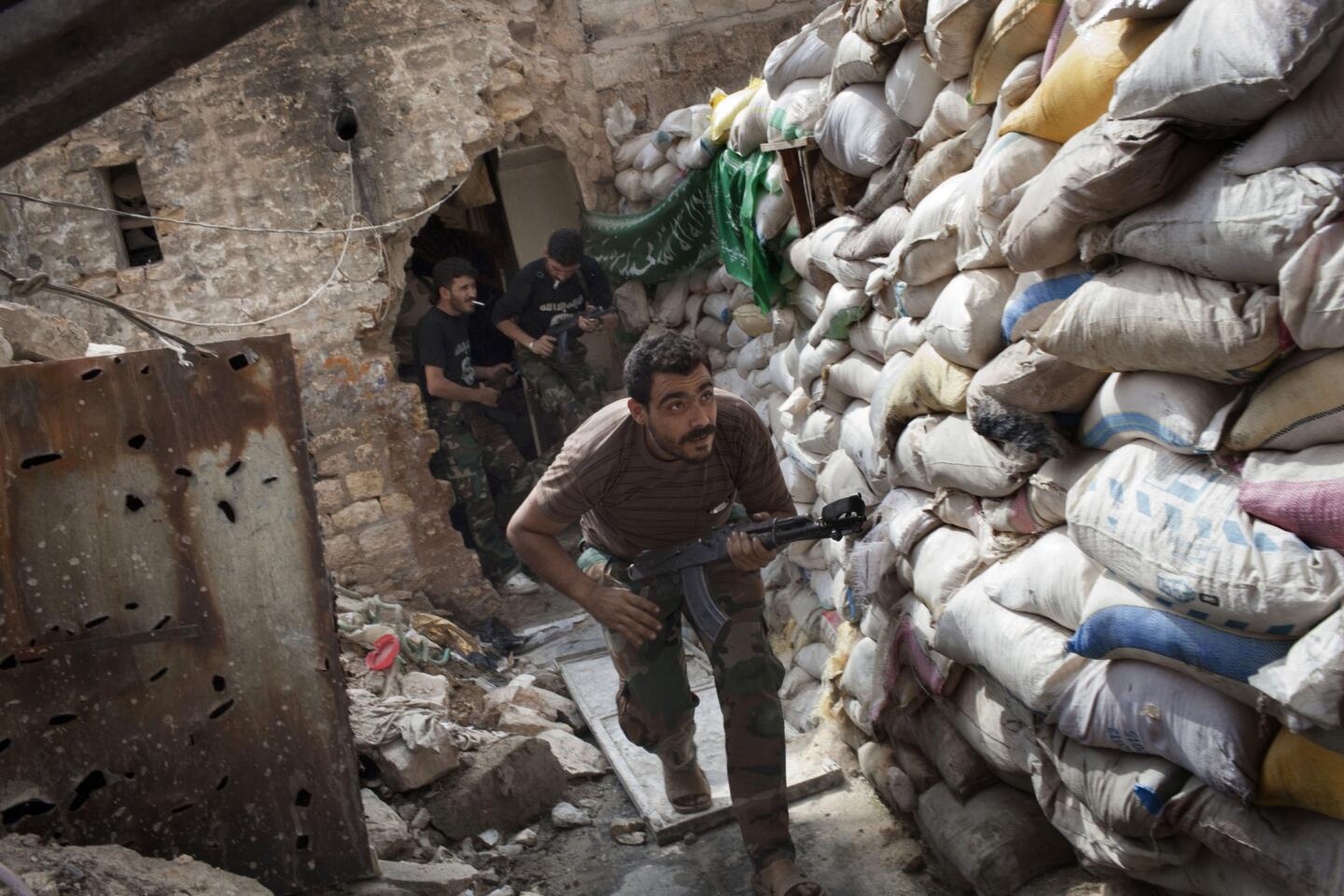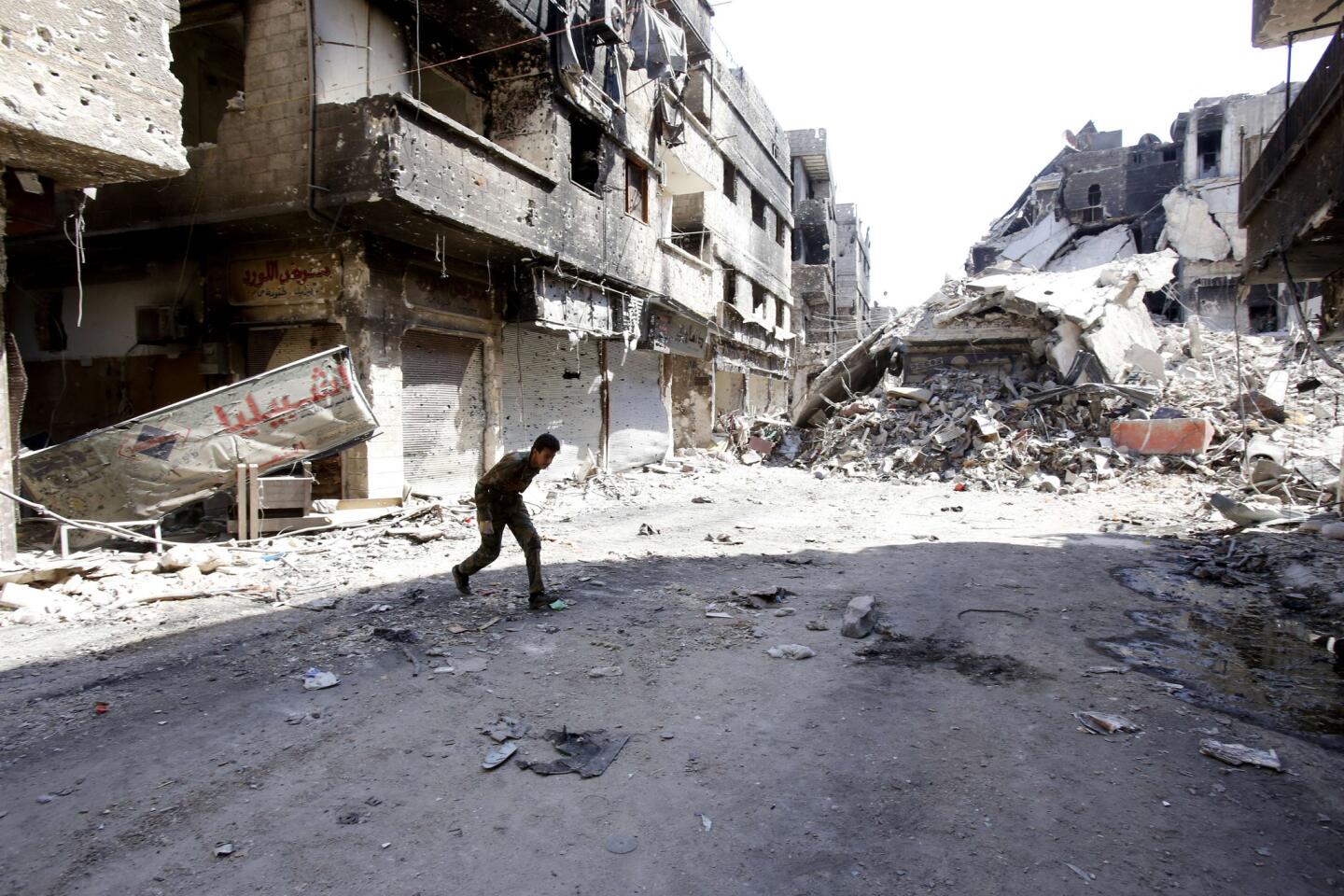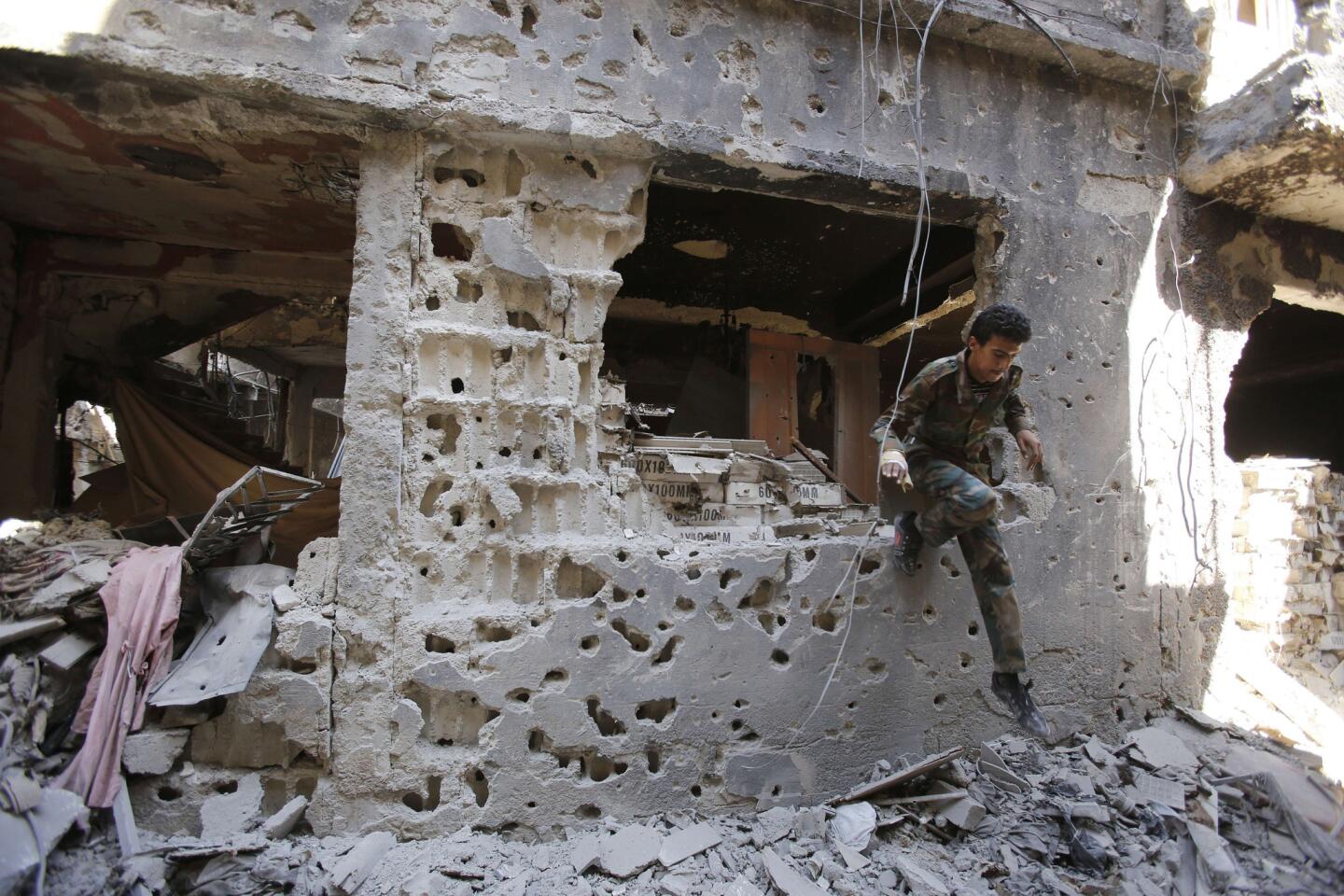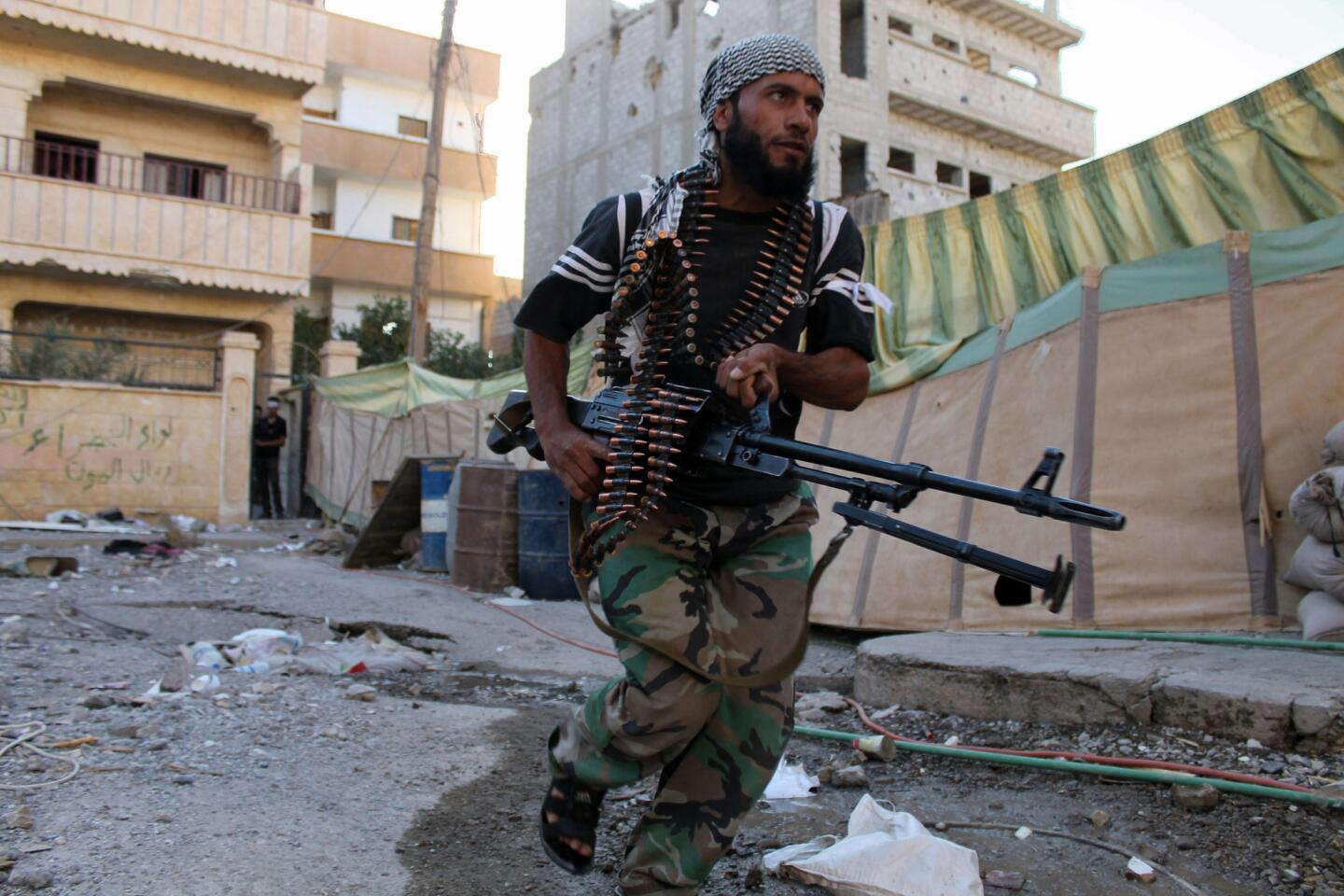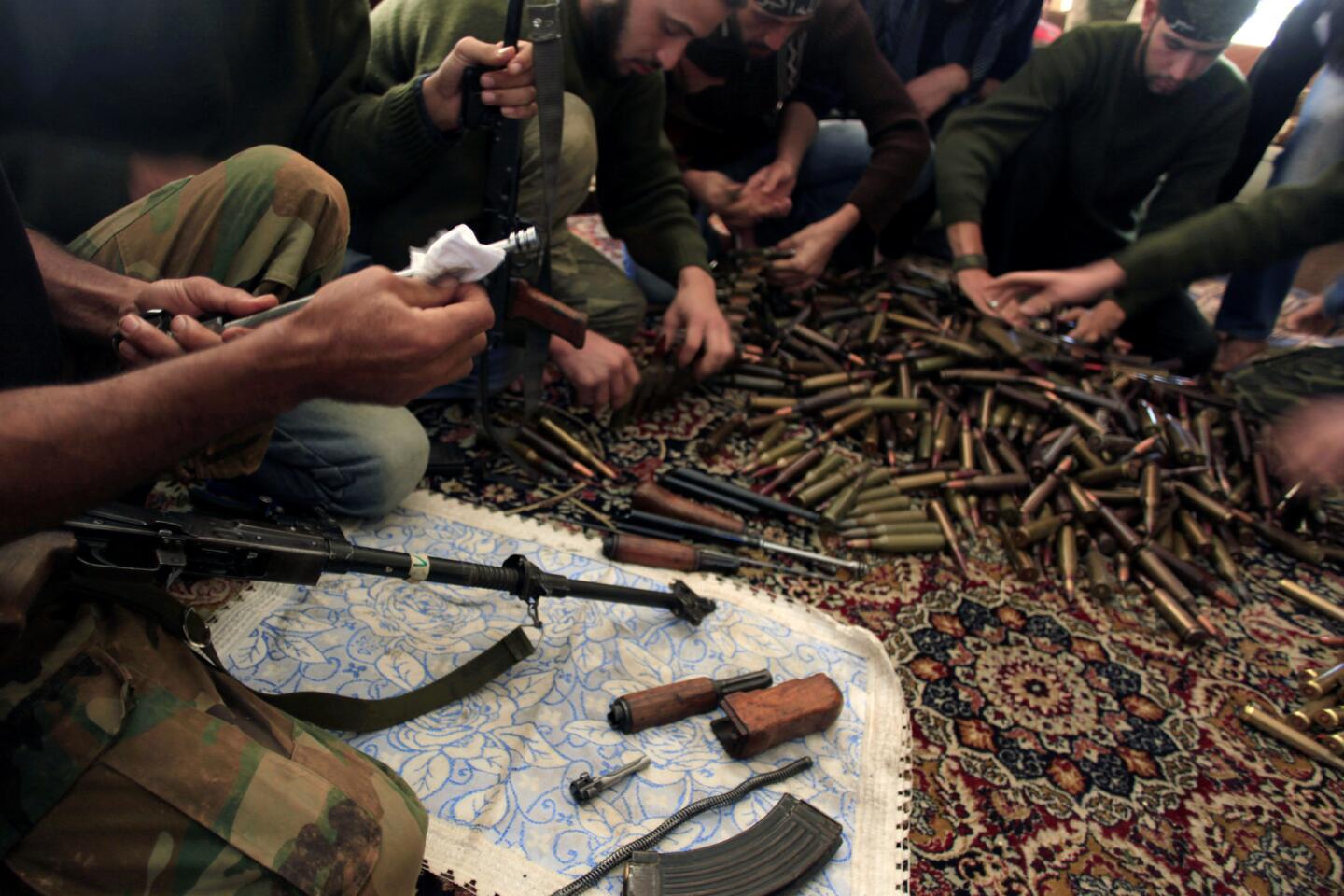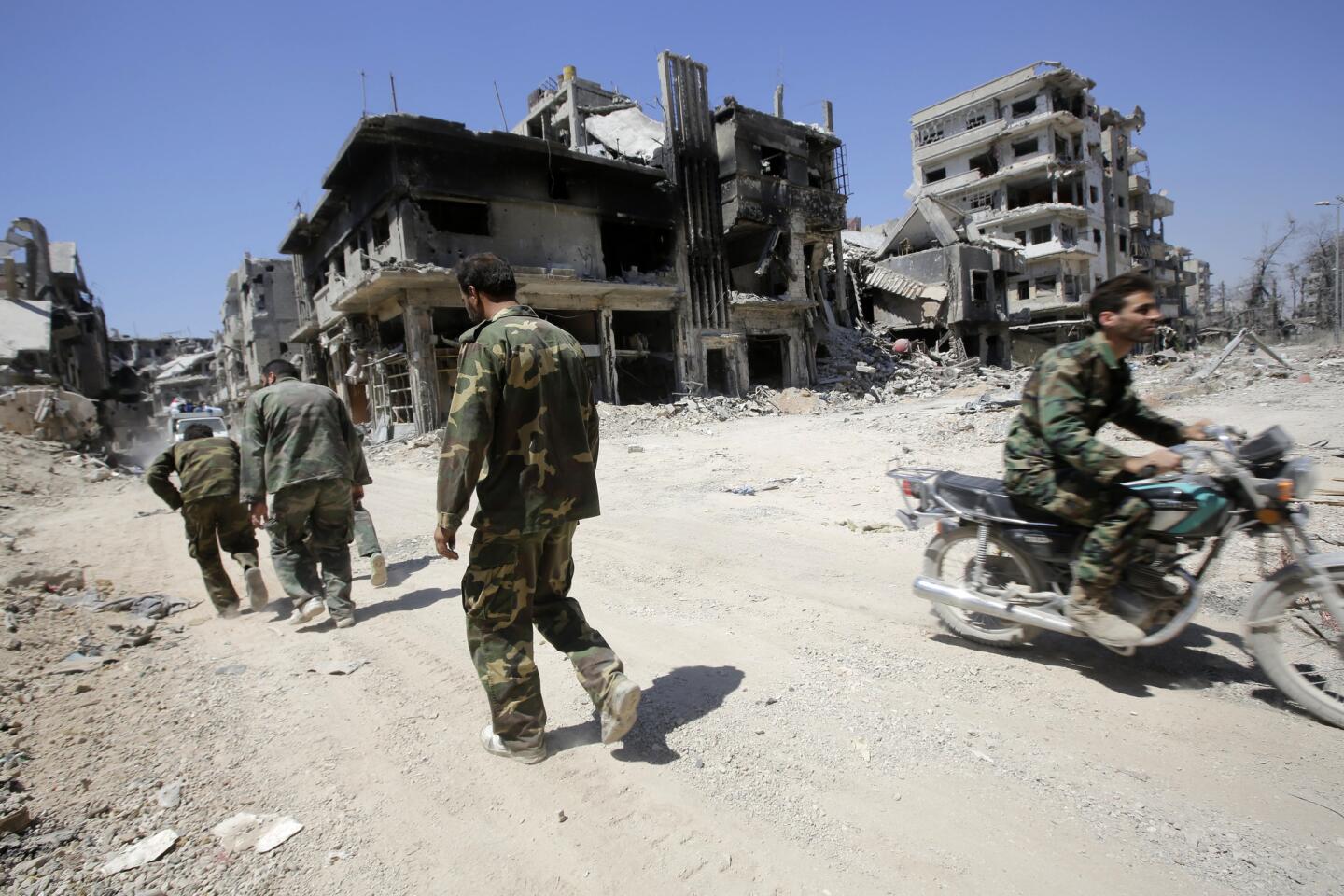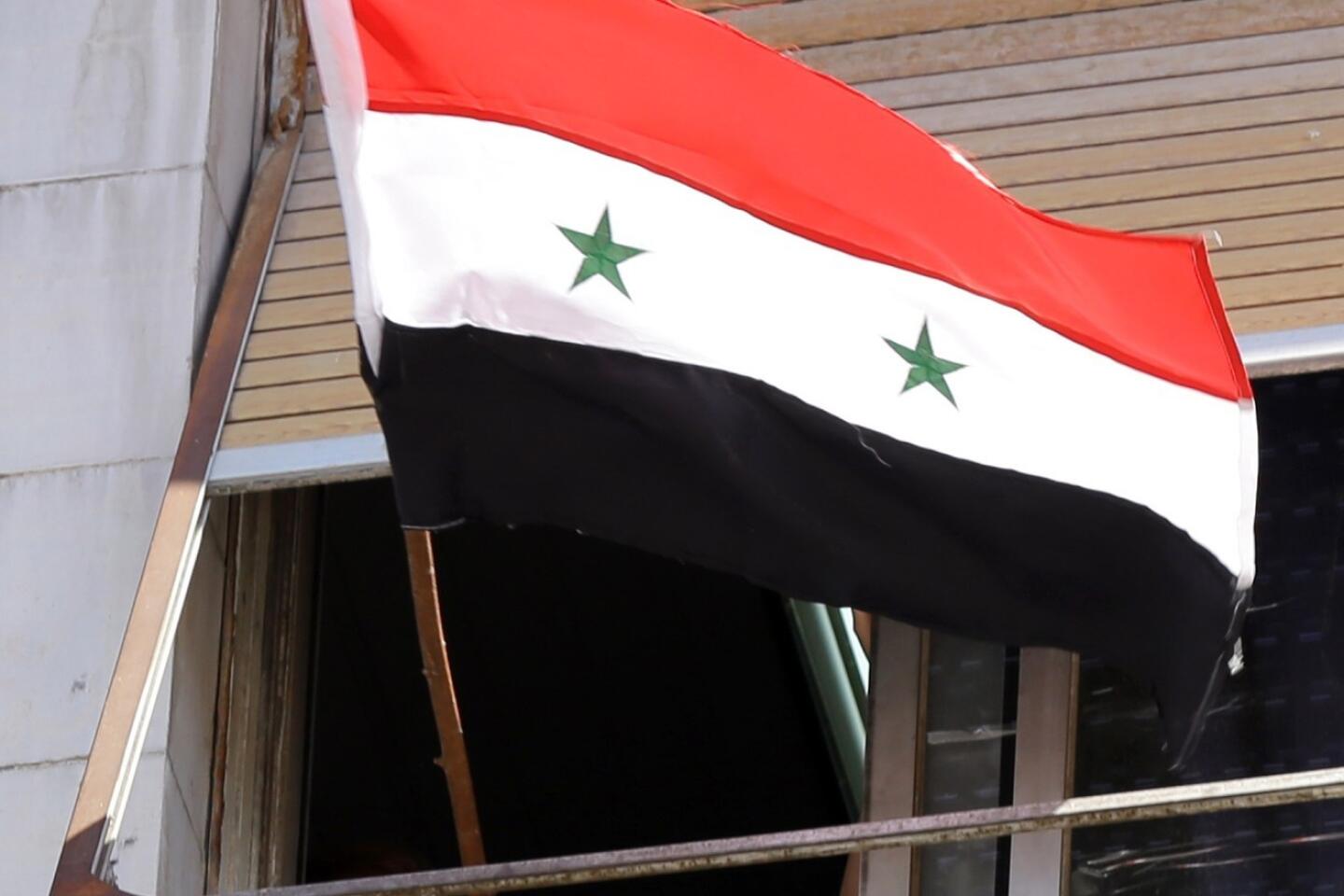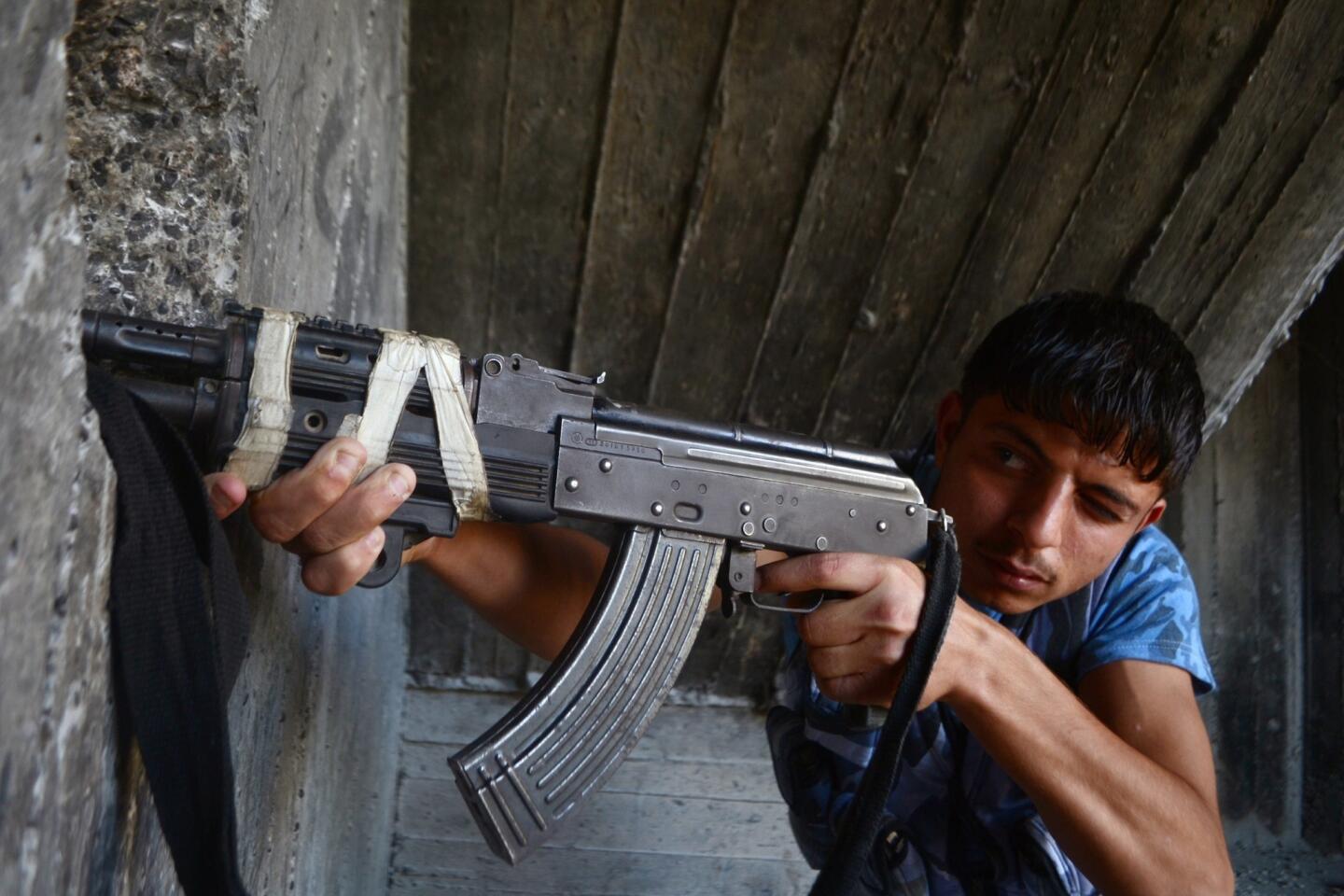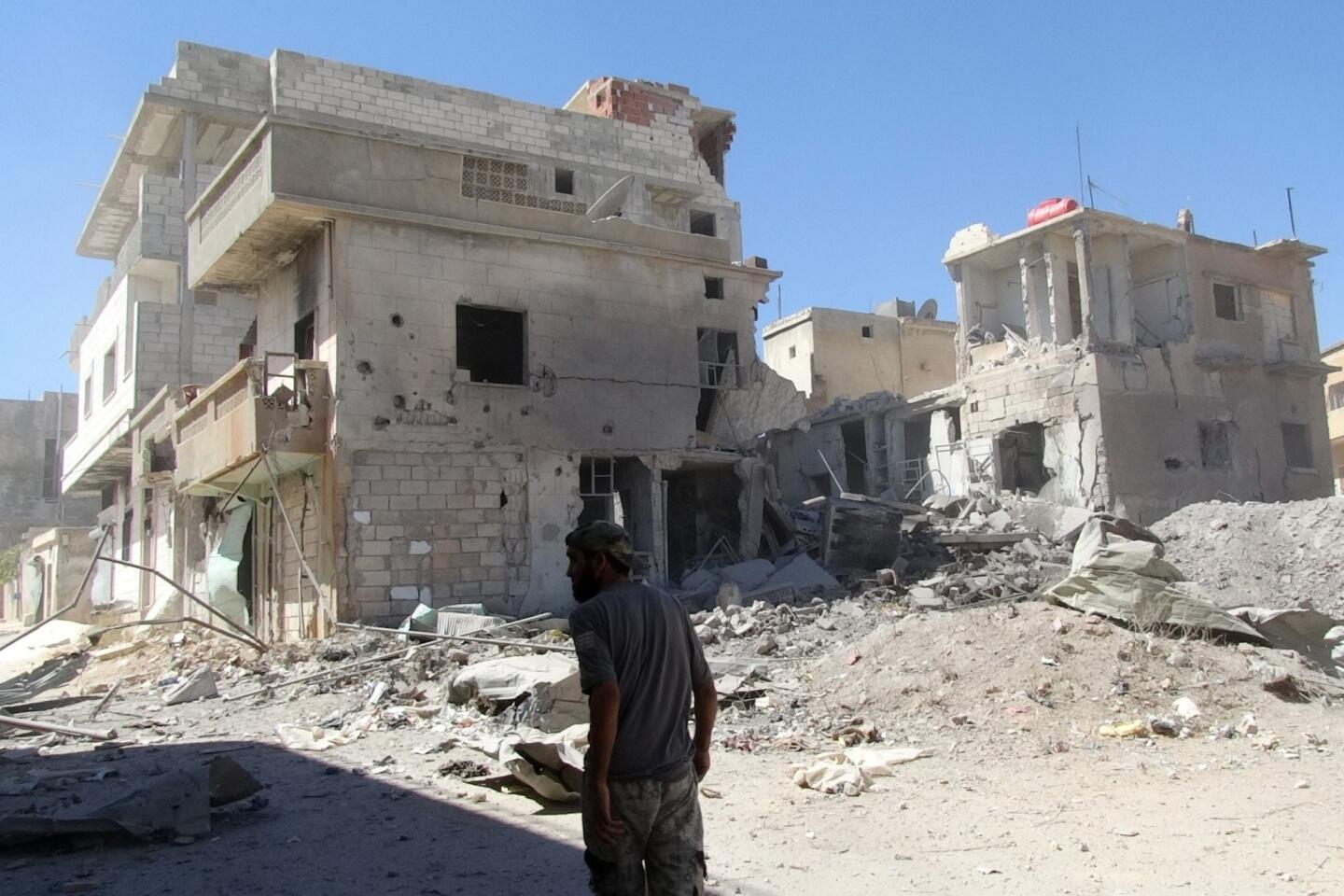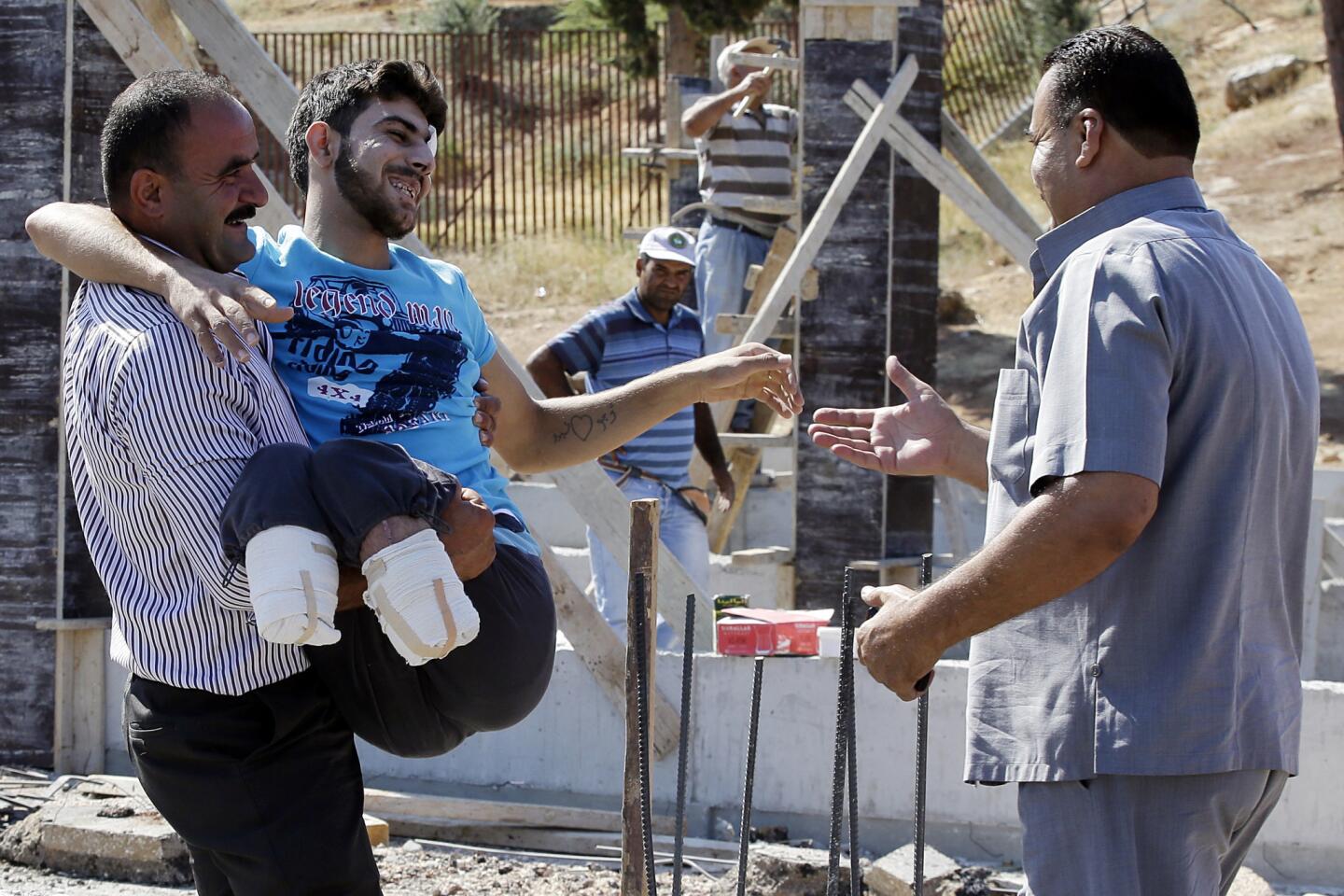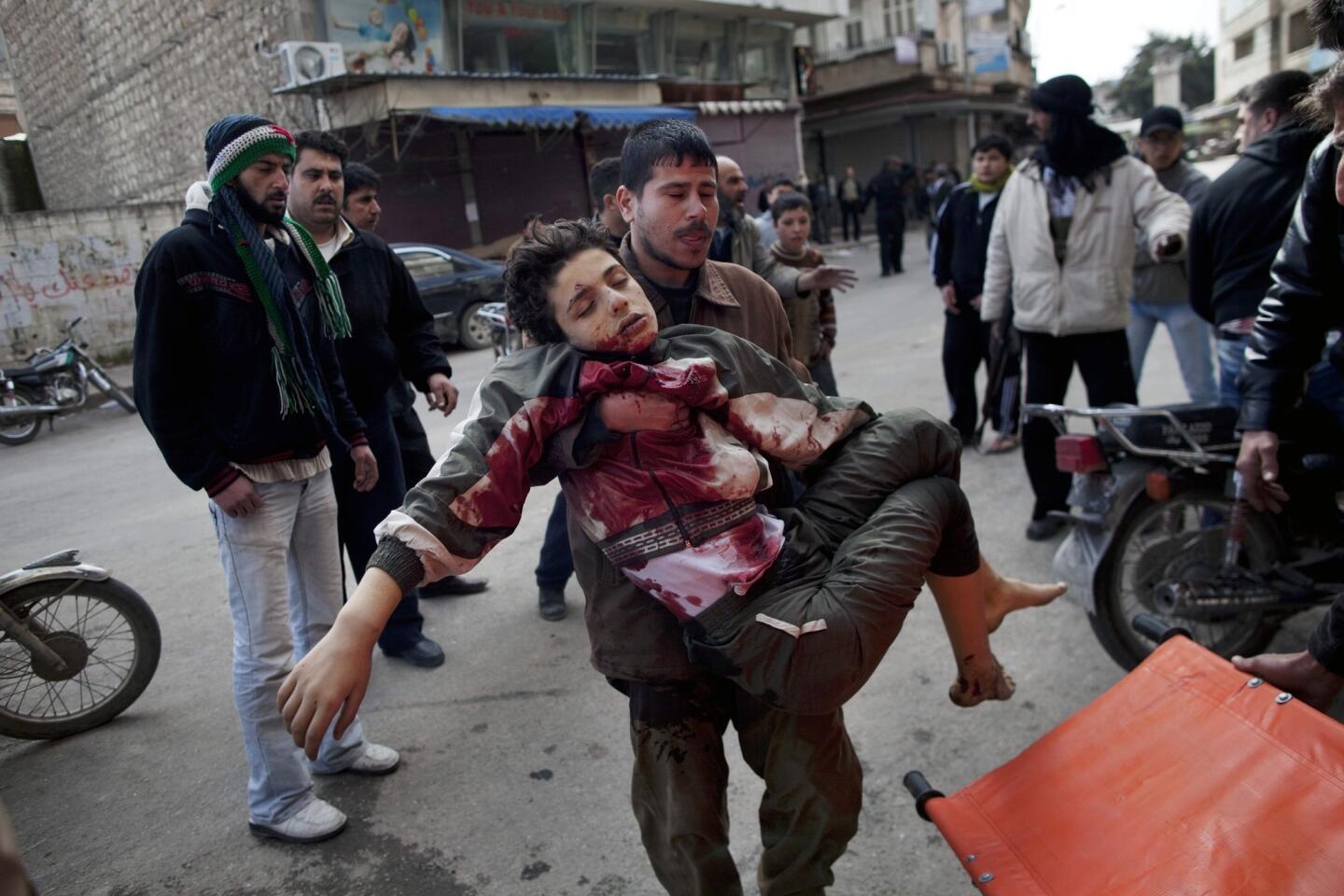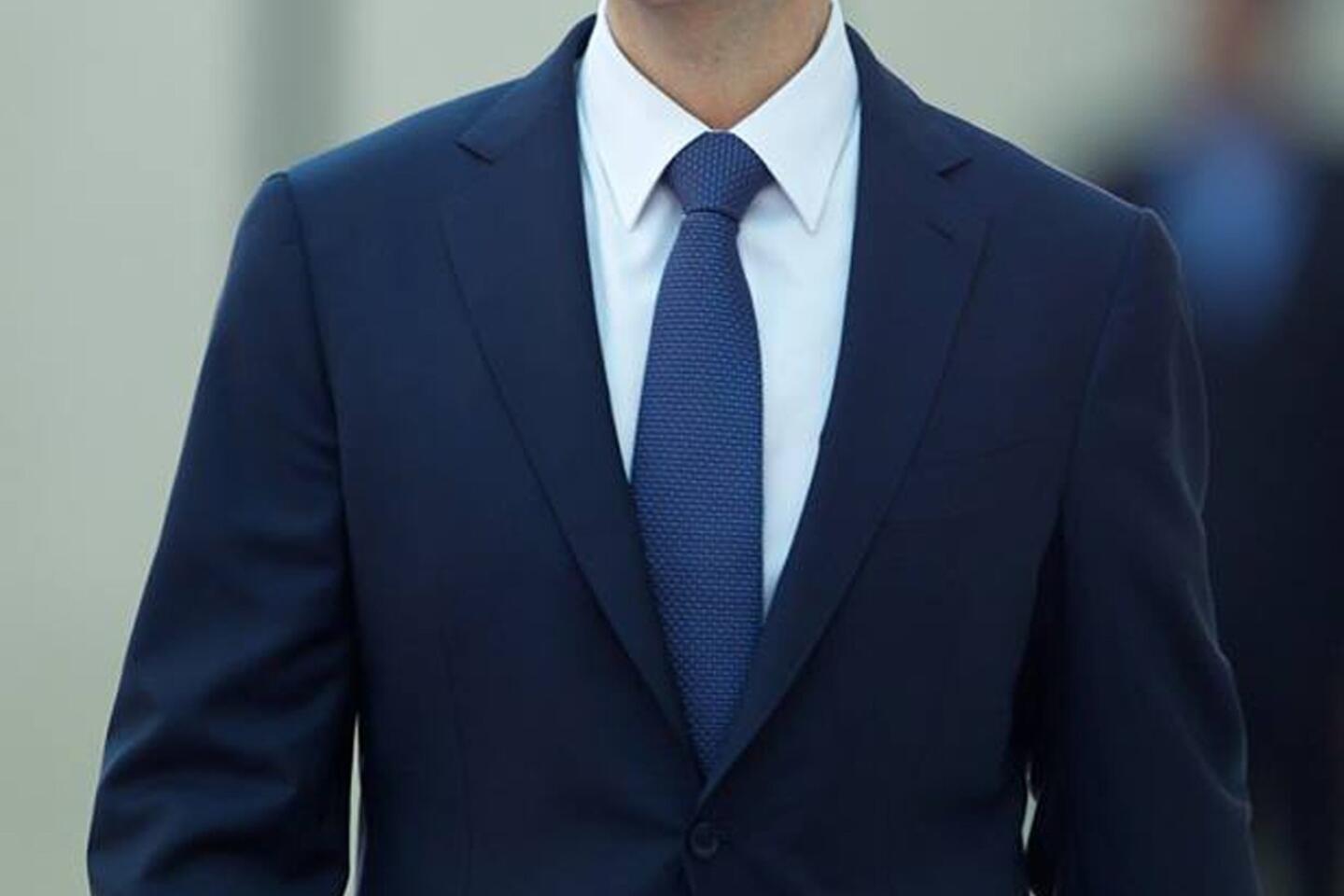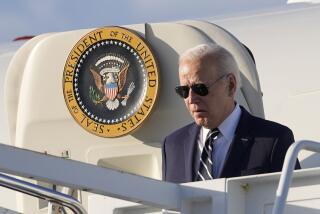Obama, appearing with ally Hollande, expresses frustration over Syria
WASHINGTON — Acknowledging “enormous frustration,” President Obama said Tuesday that his administration “continues to explore every possible avenue” to help resolve the nearly 3-year-old Syrian civil war, although he again said he had no plans for military intervention.
Appearing with French President Francois Hollande, a reliable partner in his foreign policy agenda, Obama called Syria a “crumbling” state and worried that conditions there have destabilized the region.
The president also expressed frustration in another area of close cooperation with France, threatening to come down “like a ton of bricks” on businesses that would trade with Iran while international talks continue over its nuclear program.
The president’s comments came on a day intended to highlight the successes and potential of a newly deepened U.S.-Franco alliance. Hollande’s first state visit to the United States was garlanded in grand traditions and odes of mutual admiration.
But at a White House news conference with Hollande, Obama acknowledged that the United States and its allies “are far from achieving” their goal to bring about a political resolution in Syria.
“Right now, we don’t think there’s a military solution per se to the problem,” he said. “The situation is fluid, and we are continuing to explore every possible avenue to solve this problem because it’s not just heartbreaking to see what’s happening to the Syrian people. It’s very dangerous for the region as a whole, including friends and allies and partners like Lebanon or Jordan.”
The Obama administration has repeatedly reviewed options for taking military action or stepping up aid to moderate rebel groups and decided that providing only limited aid is the wisest course.
Although Obama offered no indication that new measures were coming, his comments suggested that the increasing carnage and the rising flow of refugees have raised the pressure on the White House.
On Iran, the president issued a stern warning to international businesses that might try to jump ahead of the negotiations over easing sanctions in return for Iran scaling back its nuclear program. The talks will resume next week.
“Businesses may be exploring: Are there some possibilities to get in sooner rather than later if and when there is a actual agreement to be had? But I can tell you that they do so at their own peril right now,” Obama said. “We will come down on them like a ton of bricks.”
His words were aimed at 100 French businesses leaders who went to Tehran last week to position themselves for the possibility that trade will resume, irking U.S. officials, who said the trip sent the wrong message.
Hollande took a softer tone than Obama. He said he would remind businesses that the sanctions remain in place and they should not sign contracts before a nuclear deal was signed. He also noted that he is not in control of the country’s private sector.
“The president of the republic is not the president of the employers union in France, and he certainly doesn’t wish to be,” he said.
The exchange was a rare hint of tension on a visit marked by tributes to shared history, values, literature and art. The men began their meeting Monday with a visit to the Monticello estate of Thomas Jefferson, an admirer of France. At Tuesday’s news conference, they took turns quoting French political philosopher Alexis de Tocqueville, who wrote “Democracy in America,” an enduring classic that describes his visit in the 1830s.
At the state dinner Tuesday night, well-connected French Americans dined on caviar from Illinois and quail eggs from Pennsylvania at tables adorned with centerpieces of white irises and acacia leaves, a motif inspired by Claude Monet’s paintings.
Relations between France and the United States have warmed considerably in recent years, among the nations’ leaders and in public opinion. A Gallup poll released Tuesday found that 78% of American adults view France favorably, compared with 34% in the lead-up to the Iraq war, which France opposed.
Under Obama’s presidency, France has been a steady counter-terrorism ally. Hollande was the first leader to endorse Obama’s push for military strikes against Syria last fall, even as other European allies, most notably Britain, backed away.
Has France replaced Britain as the best European ally of the United States? a French reporter asked.
“I have two daughters,” Obama responded. “And they are both gorgeous and wonderful, and I would never choose between them. And that’s how I feel about my outstanding European partners. All of them are wonderful in their own ways.”
kathleen.hennessey@latimes.com
Times staff writer Paul Richter contributed to this report.
More to Read
Start your day right
Sign up for Essential California for news, features and recommendations from the L.A. Times and beyond in your inbox six days a week.
You may occasionally receive promotional content from the Los Angeles Times.
